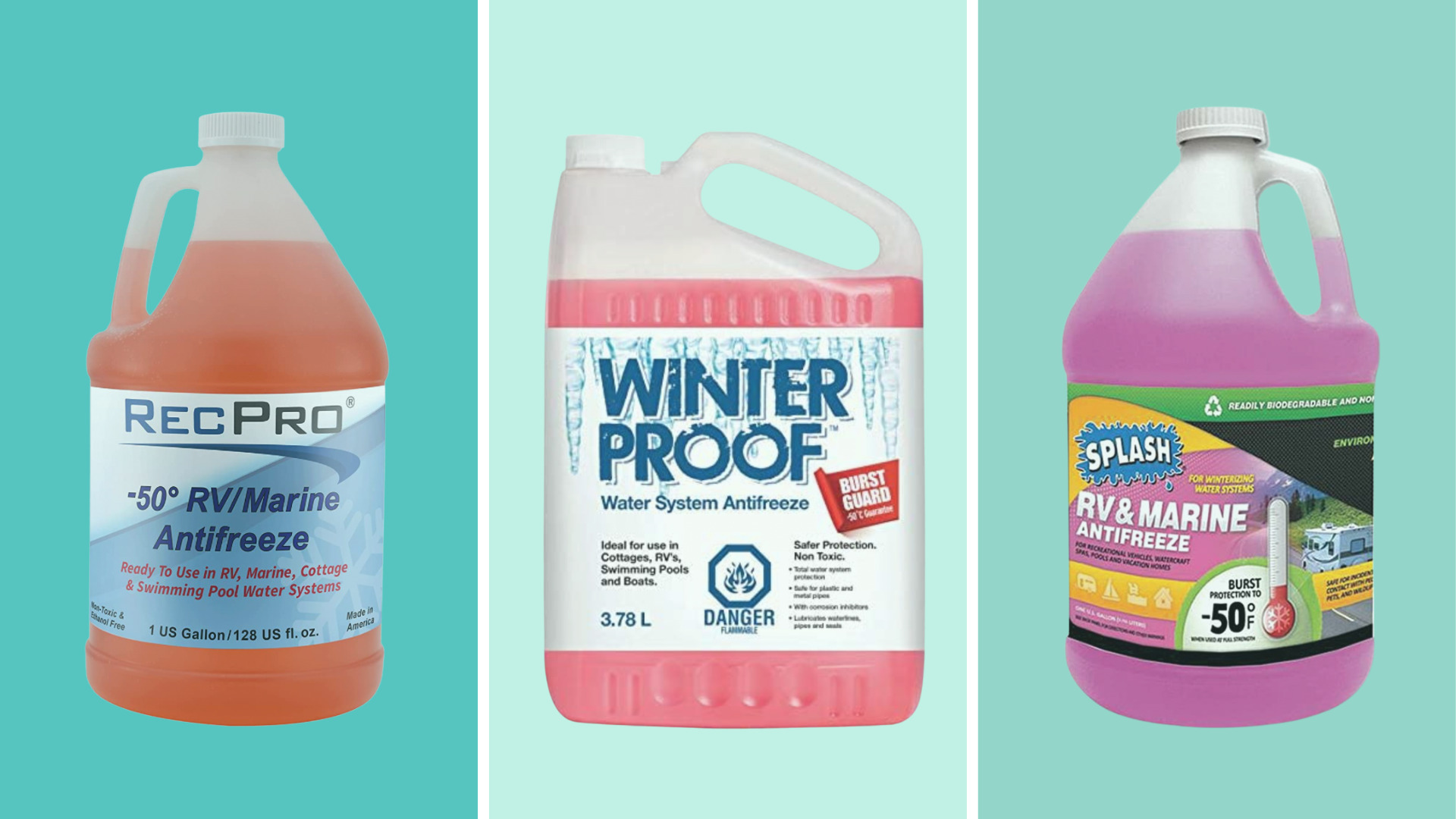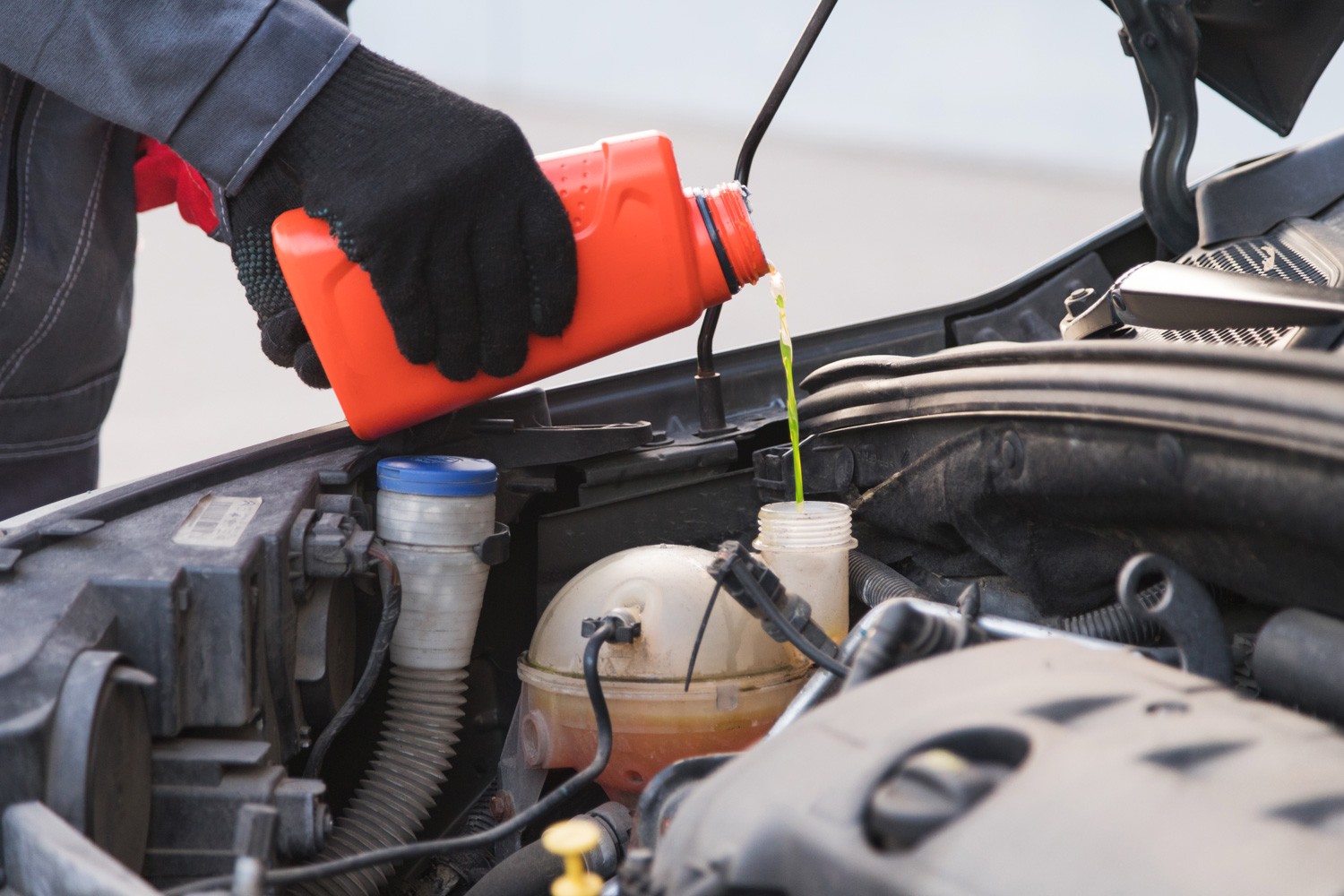-
Table of Contents
- Understanding the Benefits of Using RV Antifreeze in Your Vehicle
- The Pros and Cons of Using RV Antifreeze in Your Car
- How to Choose the Right Antifreeze for Your RV
- What You Need to Know About Using RV Antifreeze in Your Car
- Exploring the Differences Between RV Antifreeze and Car Antifreeze
- Conclusion
Understanding the Benefits of Using RV Antifreeze in Your Vehicle

If you own an RV, you know that it is important to keep it in good condition. One of the best ways to do this is to use RV antifreeze. RV antifreeze is a special type of antifreeze that is designed specifically for recreational vehicles. It is designed to protect your RV from the harsh winter weather and to keep it running smoothly.
Using RV antifreeze in your RV can provide a number of benefits. First, it can help to protect your RV from the cold winter temperatures. RV antifreeze is designed to keep your RV’s engine and other components from freezing up. This can help to prevent costly repairs and downtime.
Second, RV antifreeze can help to protect your RV’s plumbing system. RV antifreeze is designed to prevent the water in your RV’s plumbing system from freezing. This can help to prevent costly repairs and downtime due to frozen pipes.
Third, RV antifreeze can help to protect your RV’s fuel system. RV antifreeze is designed to prevent the fuel in your RV’s fuel system from freezing. This can help to prevent costly repairs and downtime due to frozen fuel lines.
Finally, RV antifreeze can help to protect your RV’s electrical system. RV antifreeze is designed to prevent the electrical components in your RV from freezing. This can help to prevent costly repairs and downtime due to frozen electrical components.
Overall, using RV antifreeze in your RV can provide a number of benefits. It can help to protect your RV from the cold winter temperatures, protect your RV’s plumbing system, protect your RV’s fuel system, and protect your RV’s electrical system. If you own an RV, it is important to use RV antifreeze to keep it in good condition.
The Pros and Cons of Using RV Antifreeze in Your Car

RV antifreeze is a type of antifreeze that is specifically designed for recreational vehicles (RVs). It is a glycol-based antifreeze that is formulated to protect against freezing and boiling in extreme temperatures. While it is designed for RVs, some people have considered using it in their cars. Before making the decision to use RV antifreeze in your car, it is important to understand the pros and cons of doing so.
Pros
The primary benefit of using RV antifreeze in your car is that it is designed to protect against extreme temperatures. This means that it can help to keep your car’s engine from freezing in cold weather and boiling in hot weather. RV antifreeze also contains corrosion inhibitors that can help to protect your car’s engine from rust and corrosion.
Cons
The primary downside of using RV antifreeze in your car is that it is not designed for use in cars. This means that it may not be as effective as antifreeze that is specifically designed for cars. Additionally, RV antifreeze is more expensive than regular antifreeze, so it may not be the most cost-effective option.
In conclusion, there are both pros and cons to using RV antifreeze in your car. Before making the decision to use RV antifreeze, it is important to weigh the pros and cons and decide if it is the right choice for your car.
How to Choose the Right Antifreeze for Your RV

When it comes to maintaining your RV, one of the most important things to consider is the type of antifreeze you use. Antifreeze helps to protect your RV’s plumbing system from freezing temperatures and other harsh weather conditions. Choosing the right antifreeze for your RV is essential for keeping your plumbing system in good condition.
The first step in choosing the right antifreeze for your RV is to determine the type of antifreeze that is compatible with your RV’s plumbing system. Most RV plumbing systems are designed to use either propylene glycol or ethylene glycol antifreeze. Propylene glycol is a non-toxic antifreeze that is safe for humans and pets, while ethylene glycol is a toxic antifreeze that should only be used in RV plumbing systems that are not used for drinking water.
Once you have determined the type of antifreeze that is compatible with your RV’s plumbing system, you should also consider the climate in which you will be using your RV. Different types of antifreeze are designed to protect against different temperatures. For example, if you plan to use your RV in cold climates, you should choose an antifreeze that is designed to protect against temperatures as low as -50°F.
Finally, you should also consider the type of antifreeze that is most cost-effective for your RV. Some antifreezes are more expensive than others, so it is important to compare prices and choose the antifreeze that is most cost-effective for your RV.
By following these steps, you can ensure that you choose the right antifreeze for your RV. Doing so will help to protect your RV’s plumbing system from freezing temperatures and other harsh weather conditions.
What You Need to Know About Using RV Antifreeze in Your Car

If you own an RV, you may be familiar with the use of antifreeze in your vehicle. Antifreeze is a liquid that is used to protect your RV from freezing temperatures and to prevent corrosion. It is also used in cars to help keep the engine cool and to prevent corrosion. While it is not recommended to use RV antifreeze in your car, there are some situations where it may be necessary.
First, it is important to understand the differences between RV antifreeze and car antifreeze. RV antifreeze is typically made from propylene glycol, while car antifreeze is usually made from ethylene glycol. Propylene glycol is less toxic than ethylene glycol, making it a safer choice for use in RVs. However, it is not as effective at preventing corrosion as ethylene glycol.
If you find yourself in a situation where you need to use RV antifreeze in your car, there are a few things you should keep in mind. First, you should never mix RV antifreeze with car antifreeze. Doing so can cause damage to your engine and other components. Additionally, you should never use RV antifreeze in a car that has an aluminum engine block. Aluminum is not compatible with RV antifreeze and can cause damage to the engine.
It is also important to note that RV antifreeze is not designed to be used in a car’s cooling system. If you need to use RV antifreeze in your car, it should only be used in the radiator and not in the cooling system. Additionally, you should never use RV antifreeze in a car that has a plastic radiator.
Finally, it is important to remember that RV antifreeze is not designed to be used in a car’s fuel system. If you need to use RV antifreeze in your car, it should only be used in the fuel tank and not in the fuel lines.
Using RV antifreeze in your car can be a tricky situation. If you find yourself in a situation where you need to use RV antifreeze in your car, it is important to understand the differences between RV antifreeze and car antifreeze, as well as the potential risks associated with using RV antifreeze in your car. By following these guidelines, you can help ensure that your car remains safe and reliable.
Exploring the Differences Between RV Antifreeze and Car Antifreeze
When it comes to keeping your vehicle running smoothly, antifreeze is an essential component. But did you know that there are two different types of antifreeze – one for cars and one for recreational vehicles (RVs)? While both types of antifreeze serve the same purpose, there are some key differences between them.
The most obvious difference between car antifreeze and RV antifreeze is the type of base used. Car antifreeze is typically made with ethylene glycol, while RV antifreeze is made with propylene glycol. Ethylene glycol is more toxic than propylene glycol, so it is important to be careful when handling and disposing of car antifreeze.
Another difference between car antifreeze and RV antifreeze is the freezing point. Car antifreeze typically has a lower freezing point than RV antifreeze, which means it is better suited for colder climates. RV antifreeze, on the other hand, has a higher freezing point and is better suited for warmer climates.
Finally, car antifreeze and RV antifreeze also differ in terms of their boiling points. Car antifreeze has a higher boiling point than RV antifreeze, which means it is better suited for higher temperatures. RV antifreeze, on the other hand, has a lower boiling point and is better suited for lower temperatures.
When it comes to choosing the right antifreeze for your vehicle, it is important to consider the differences between car antifreeze and RV antifreeze. While both types of antifreeze serve the same purpose, they are not interchangeable and should be used according to the specific needs of your vehicle.
Conclusion
In conclusion, RV antifreeze and car antifreeze are both designed to protect against freezing temperatures, but they are not interchangeable. RV antifreeze is designed to be used in recreational vehicles and is formulated to be non-toxic and safe for drinking water systems. Car antifreeze is designed to be used in cars and is formulated to be toxic and not safe for drinking water systems. Therefore, it is important to use the correct type of antifreeze for the application.









